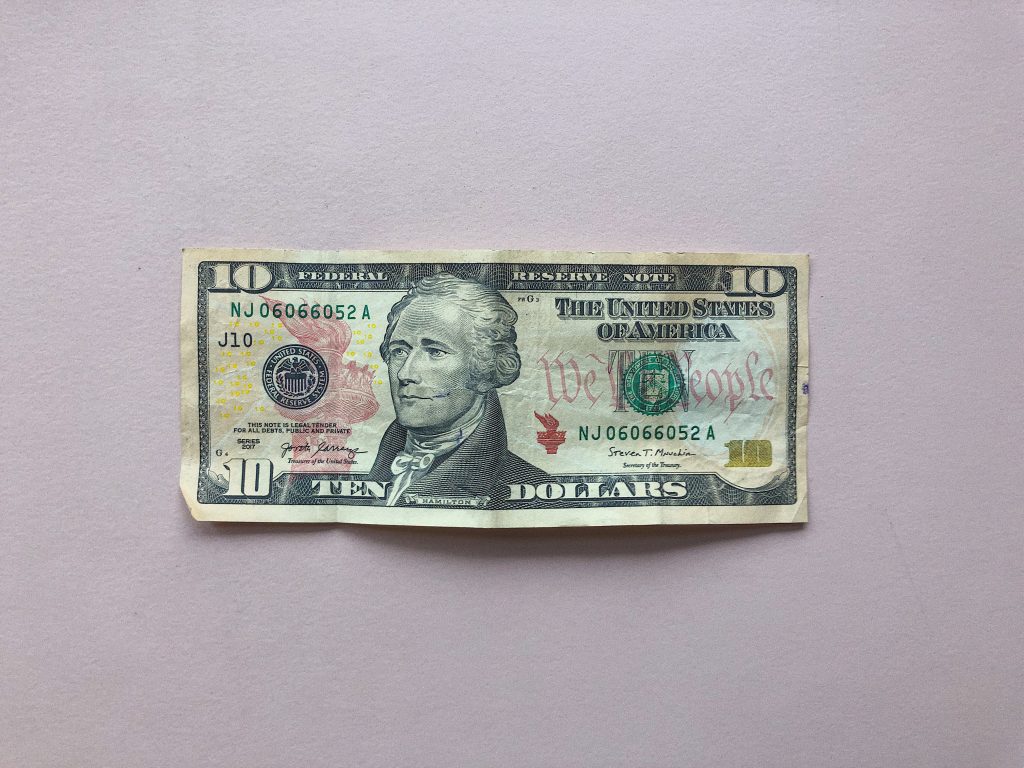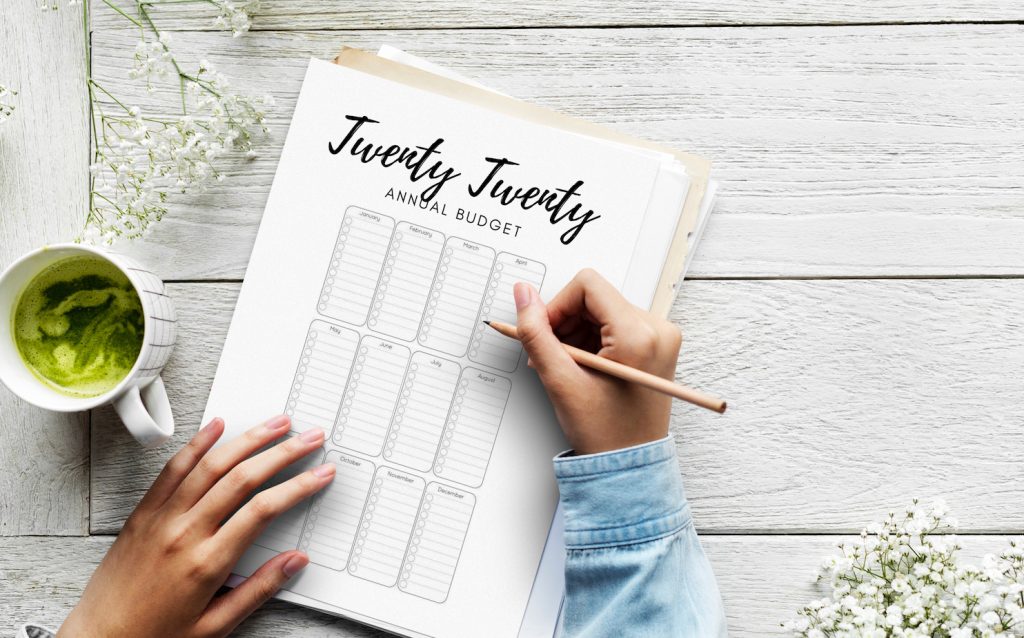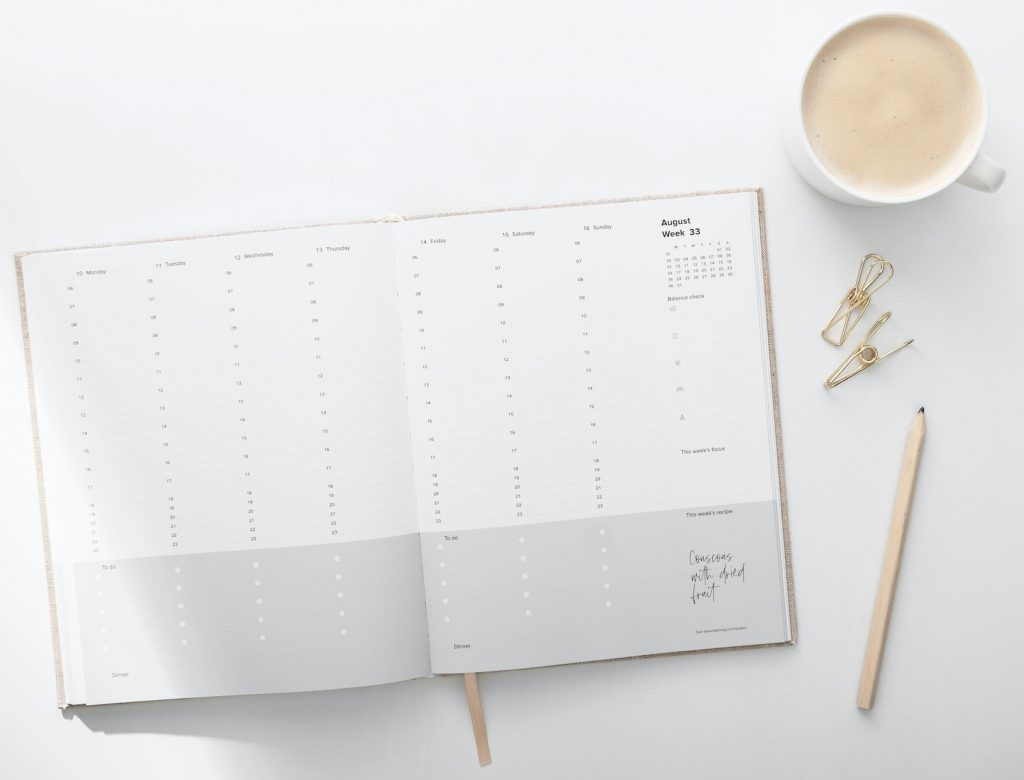(6 minute read)
There are a million ways to budget, and no budget is one-size-fits-all. So before you even dive into this article, I have to say – build a budget, any budget, and do it today! Getting started is ALWAYS better than being perfect. If you haven’t made a budget yet, check out my other post, “How to start a budget for beginners” to get started. And to build the best budget for you and your family, make sure you avoid (or easily correct) these top 10 budgeting mistakes today.
1. Not customizing the categories
The first of the top 10 budgeting mistakes that you can easily correct today is not customizing your budget categories. This one is easy, but all too often, I see that people feel like they HAVE to use the categories that come with any budget app or spreadsheet you can download online. And this is a huge mistake because each of our lives, and therefore each of our expenses, is unique. So before you even look for an app or a cute worksheet to download to build your budget, sit down with a good ole’ sheet of notebook paper and write down the categories that you feel fit best in your life. Then when you do find a system that works best for you (I use the every dollar app), you can easily plug in the categories that you need vs. the ones they provide.
2. Forgetting to add ALL your income
I know this seems like a mistake no one would make, but I see it all the time! Typically the paycheck always gets listed, but it’s all the other little inputs that get forgotten. And that is just a missed opportunity to make a significant impact.

If you don’t think adding that $10 you found in your winter coat to your budget is a big deal think about it this way, if once a month an extra $10 showed up in your life, in one year, you would have missed out on recording $120 in income to your life. And if you don’t write it down, then you don’t allocate it. Had you invested that $120 yearly at a return rate of 5% over ten years, you would have made over $1600! But you can’t invest money you don’t think you have, so write everything down!
3. Forgetting to record ALL your expenses
Coming in at #3, a common mistake people make is not writing down all their expenses. Either they genuinely forget they made the purchase or (and more commonly) I hear that people don’t write down the charge because they are ashamed or embarrassed about the amount or type of purchase. Either way, you can quickly correct this mistake by setting a reminder on your calendar every few days. Then go through your bank account or wallet and review your charges and write everything down.
Also, as you build this habit, ALWAYS getting a receipt that you put in one place so you can keep track of every purchase will be helpful too. (Pro Tip: Take a photo of every receipt when you get it. That way, if it goes through the wash, you have a record of the purchase somewhere convenient!) As you build the habit, you can develop a system that works best for you.
If you aren’t recording your expenses because of shame or embarrassment (or some other emotion in that family), this is your opportunity to evaluate those feelings. The best advice I can give you is just to write everything down because it allows you to make informed decisions about your budget and your money instead of emotional ones.
4. Not having a yearly budget
This is a little gem I discovered a few years ago, and it has made a big difference on my budgeting journey. Most of us have things that we pay for annually or bi-annually, and if you aren’t an active budgeter (or even if you are), chances are these charges creep up on you every year and sabotage your monthly goals. Nothing like having that $129 Amazon Prime annual charge show up on your statement to torpedo your savings goals, right?

So what you can do right now is make a mental note to write down an annual charge when you see it and look at your next month’s statement last year to see if you have any charges upcoming. Knowing it is coming allows you to do two things proactively:
- Account for it in your budget, so it is an expense you are prepared for instead of a surprise you have to deal with.
- Evaluate if you want to keep paying for it.
And that kind of knowledge is power right?!
5. Not accounting for the miscellaneous
When I started budgeting, I tried SO HARD to have a category for everything. But sure enough every month, there would be 1 or 2 charges that just didn’t fit anywhere on my budget. Perhaps it was a pedicure you got with a friend that you usually don’t do or a gift you bought for a new friend’s birthday you didn’t know was upcoming. (Budget confession: “Beauty” and “Gifts” are not regular categories in my budget). Whatever it is, allowing yourself to have a “Miscellaneous” line item on your budget, even if it’s just $25, will give you that breathing room you need when you need to make a purchase that just doesn’t have a home on your budget. And if you get to the end of the month and you didn’t spend it? Well, you just gave yourself a little bonus in your savings account!
6. Overspending in a category and not readjusting
I’m going to tell you right now, even the most disciplined budgeters are going to go over one of their budget categories at some point. Overspending in a category doesn’t mean you don’t have any discipline; it’s just the way life sometimes goes even if you planned meticulously. But if you do overspend in a category you now have two things you should do:
- First, evaluate if you need to make a budget adjustment to that category regularly moving forward. You can quickly figure this out if your overage was a result of under-budgeting in that category for your needs versus overspending for the hell of it.
- Second, reflect on what caused you to overspend this month in that category. Was it genuinely just an anomaly this month? Have you been skimping on regularly reviewing your budget, so you didn’t know what your budget was in the category? Was it the result of something unexpected? Whatever it was, reflecting on the overage is vital so you can make the appropriate adjustments both right now and moving forward in the coming months.
Once you know you went over, you have the opportunity to readjust, and this is a mistake I see people not do far too often. Since you have a set amount coming in that month so you also have a set amount you can afford to let go out. So look around at your other categories and decide where you can cut back from to cover the overage. By readjusting when an overage happens, it helps keep you on the path for your overall goal of only spending what you have.
7. Not doing a mid-month review and refresh of your budget
I often see people set their monthly budget and then refuse to mess with it the entire month. This isn’t a realistic model because life is an ever-changing thing, and that includes how we might need to spend our money.

I’ll give you an example from my budget last month – My boyfriend and I work from home, so we rarely drive, leaving our gas budget pretty low for the month. But with the quarantine happening too, we really weren’t driving anywhere. So during my mid-month review and refresh, I noticed we hadn’t spent any of our gas money yet that month, and after a quick check at both our gas gauges, (both nearly full) I realized we weren’t going to spend any of that money for the next 15 days.
What that allowed me to do was move the money I had allocated for “gas” to my “groceries” category that had gotten a little tight (has anyone else’s grocery budget just skyrocketed during this time?!) and move a little extra into our savings. A mid-month review can be powerful because it helps you make real-time informed decisions about your money.
8. Not evaluating your spending MONTHLY and reworking your budget accordingly
Alright, you had to know this one was coming after the last budgeting mistake, but you should be regularly evaluating your budget after every month and reworking your budget accordingly. As you build your budget for the next month, you should be reviewing that same month last year as well as checking your yearly budget to see what kind of annual charges you might have. But you also should be reviewing the month that just happened to see if you have to make any tweaks or adjustments.
Maybe you got a raise or your spouse lost their job – those would be apparent adjustments you have to make to your budget. But what if your dog got sick and now you are going to have to refill his medication next month unexpectedly? You need to adjust your “pet” category accordingly. Or perhaps you overspent in one of your categories, and during your evaluation of that overage, you determined you need to make a regular increase to this category. Whatever it is, no matter how much of a planner you are, always make sure to spend a quick 15 minutes at the end of the month looking at how accurate and helpful your budget was and make any adjustments for the next month,
9. Not adding back interest in your debt tracker
If debt is a line item on your budget, one of the biggest things I see people miss is adding back in the interest that the debt is earning to that line item. And if it is consumer debt (like a credit card), then the interest it is growing by each month could be a significant amount that you aren’t accounting for. You can use this handy tool to calculate how long it will take you to pay off your credit card. If you click on the “see your amortization schedule,” you can see how much interest will be applied each month so you can account for that in your pay down plan.
10. Saving without a goal in mind
Now, it is NEVER a mistake to save money, so please go saving away! But saving without a goal is kind of like driving around without a destination in mind – eventually, you are going to run out of gas. What having a savings goal (or multiple goals) helps you do is have an intention, and therefore an emotional motivation to put money towards that goal. And when you have a destination in mind, you can decide how strongly and quickly you want to reach it.

So if you have a trip you want to take next year or a house, you want to make sure you can pay for then figure out how much you need to save every month (and for how long) so you can achieve it.
I hope this helps you make your budget stronger by knowing the top 10 budgeting mistakes that you can easily correct today. Comment on this post, share it if this made your budget journey a little brighter, or let me know if I missed anything. And as always, I hope you do what makes you feel happy and healthy!
Xoxo,
Amy





